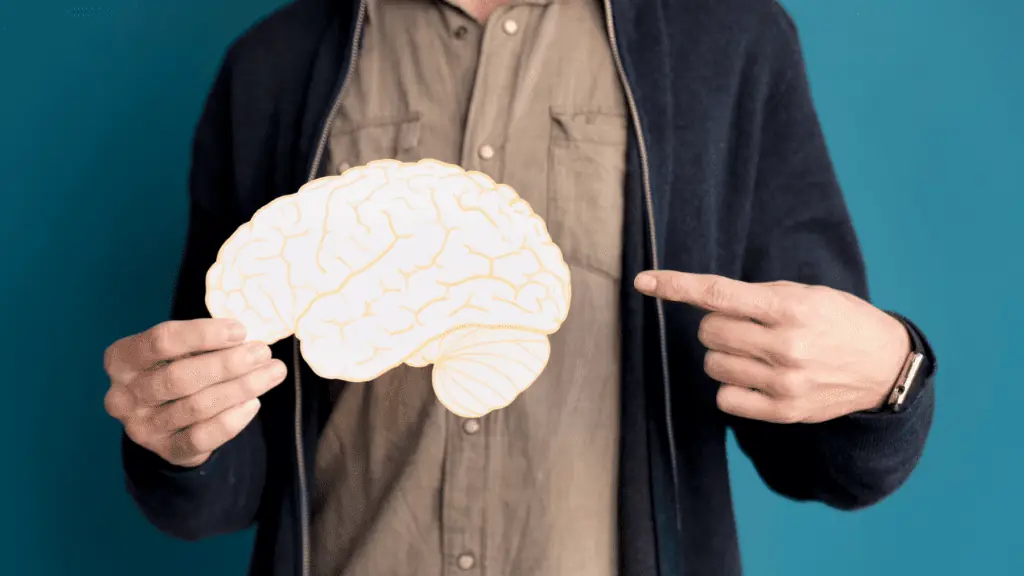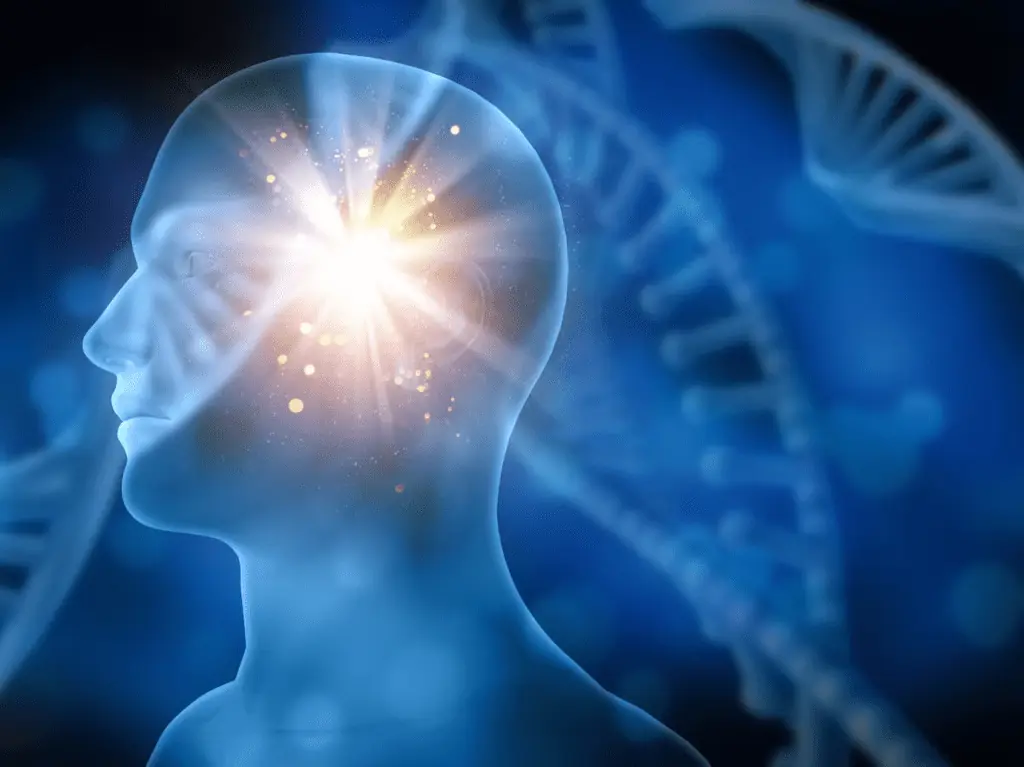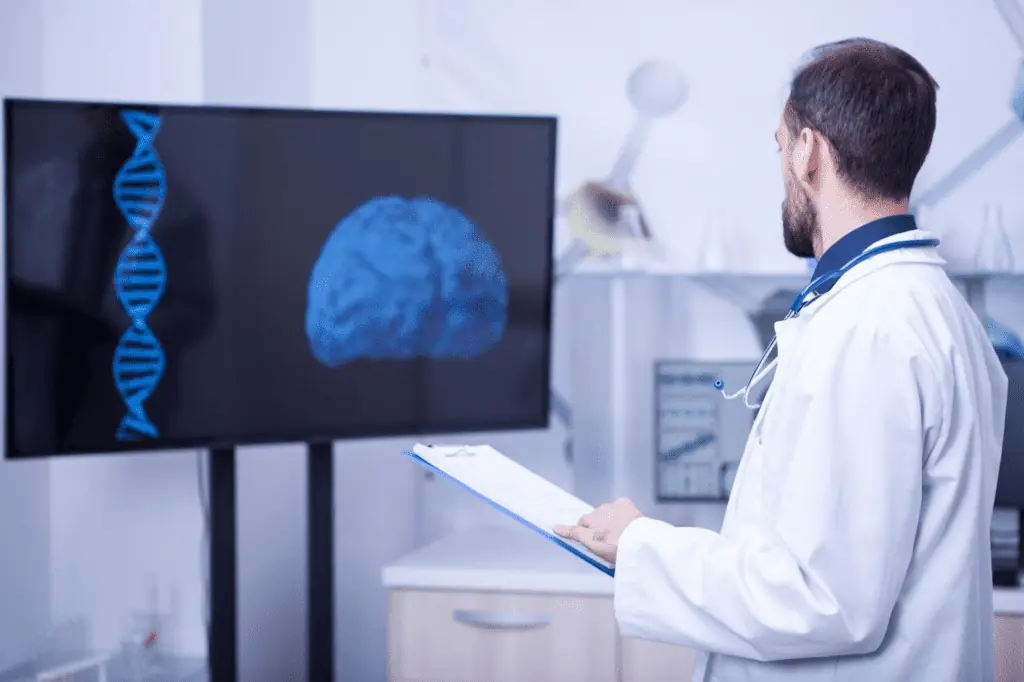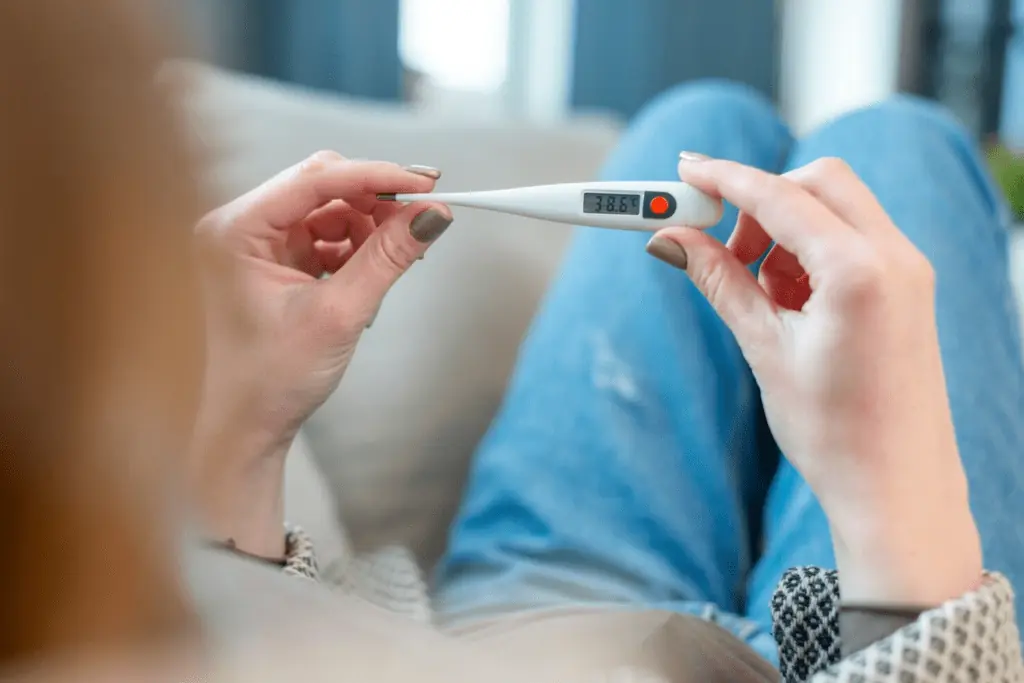
You know that little organ in your brain that controls just about everything? The one that regulates your body temperature, hunger, thirst, sleep cycles, and more? Yeah, it’s called the hypothalamus. And it’s kind of a big deal. So what happens when something goes wrong with this tiny piece of machinery? Well, it can cause some pretty serious problems. Hence, it’s important to watch out for symptoms of hypothalamus disorder.
In this article, we’ll look at some of the most common hypothalamus symptoms and what they mean. We’ll also talk about the causes of hypothalamus problems, how they’re diagnosed and treated, and what to do if you think something’s wrong.
What Is The Hypothalamus?
Your hypothalamus is a small organ located deep within your brain that controls many of your body’s functions. Moreover, it is the primary connection between your endocrine and neurological systems. Your hypothalamus maintains your body in a steady condition known as homeostasis.
What Does Your Hypothalamus Do?
The hypothalamus is a small but powerful part of the brain that acts as both a control center and regulator for other parts of the body. The main function of the hypothalamus is to help maintain your body’s internal balance and stability. Your hypothalamus is your body’s “smart control” facility, just like you might have a “smart control” system in your home to ensure everything runs smoothly.
Moreover, the hypothalamus plays a key role in regulating the following:
- Body temperature
- Blood pressure
- Hunger and thirst
- Satiety
- Mood
- Sex drive
- Sleep.
Many of the “body balancing” tasks are carried out by your hypothalamus, either through direct influence on the autonomic nervous system (ANS) or through the regulation of hormones. The ANS regulates various vital functions, including your heart rate and breathing, while your hormones are chemical messengers throughout the body.
Your hypothalamus creates its own hormones, which it then stores in other places (in your posterior pituitary). It also sends signals to your pituitary gland, which then releases hormones into the bloodstream.

Hypothalamus Disorders
Your hypothalamus may sometimes have issues that lead to disorders. These issues may potentially have an impact on your pituitary gland. Some disorders are brought on by either too few or too many hormones. Some of these include:
Hypothalamic-Pituitary Disorders
Hypothalamic-pituitary disorders are a group of conditions that affect the hypothalamus and pituitary gland, which play a large role in the body’s endocrine system.
Hypopituitarism
Hypopituitarism is one of the most common forms of hypothalamus disorder. Moreover, hypopituitarism means that the pituitary gland has been damaged and is not functioning properly.
Diabetes Insipidus
This disorder occurs when your hypothalamus fails to create and release sufficient vasopressin. This forces your kidneys to give up too much water, resulting in frequent urination and thirst.
Prader-Willi Syndrome
This hereditary disorder causes your hypothalamus to fail to identify the feeling of fullness when you eat. Without this feeling, you have a persistent need to eat and are in danger of becoming obese.
Functional Hypothalamic Amenorrhea
This condition occurs when you cease getting your period. When your system does not get enough fuel from food, it might elevate cortisol levels. Cortisol suppresses the hypothalamus-ovary link, resulting in low hormone levels. This interferes with ovulation and results in missed periods.
Kallman Syndrome
This condition is a congenital disorder that results in infertility, lack of sexual development, and delayed puberty after puberty.
Causes Of Hypothalamus Disorder
The hypothalamus is an important part of your endocrine system and plays a role in regulating many important functions. Hypothalamus disorder can be caused by a number of factors, including:
- Brain tumor
- Cancer and cancer treatment, especially in children
- Head injury
- Brain surgery
- Brain swelling
Diet and physical activity may have an impact on the hypothalamus. When your body lacks energy, it goes into stress mode and produces cortisol, which may decrease function in the hypothalamus and cause problems. This stress reaction may trigger eating disorders, which in turn may lead to:
- Low weight
- Emotional stress
- Too much exercise
- Not eating enough calories

Signs And Symptoms Of Hypothalamus Disorder
The symptoms of hypothalamus disorder relate to the hormones involved and whether the hormone levels are too low or excessively high. Problems in the hypothalamus may manifest in various ways, including:
High Blood Pressure Or Low Blood Pressure
Blood pressure is a measurement of the force that blood exerts against the walls of your arteries as it travels through them. Your heart pumps blood into your arteries and veins, where it travels through your body.
Hypothalamus disorder can cause high and low blood pressure because the hypothalamus directly affects your ANS. Remember, the ANS regulates functions like breathing and heart rate, which control how quickly your heart beats and how much oxygen you breathe in with each breath.
Water Retention Or Dehydration
The hypothalamus is responsible for regulating body temperature and blood pressure. When it doesn’t function properly, you may experience either water retention (high blood pressure) or dehydration (low blood pressure). Dehydration can be caused by excessive sweating, vomiting, diarrhea, or urinary tract infections. Water retention can cause swelling in the legs and feet, headaches, and shortness of breath.
Weight Loss Or Weight Gain
The hypothalamus is a part of the brain that helps regulate appetite and metabolism. When it’s not functioning properly, these functions can be disrupted. Hence, you might find yourself losing or gaining weight unexpectedly.
You may also notice that your appetite has changed, whether you’re eating more or less than usual. If you have trouble controlling your appetite, it could be an indicator that something is going on with your hypothalamus.
Infertility
Infertility is a complex and frustrating problem for many couples. While it can be caused by various factors, one of the most common causes is hypothalamic dysfunction.
Your hypothalamus directly affects your pituitary gland, which regulates other hormones like estrogen and progesterone. A malfunctioning hypothalamus could lead to infertility by causing your body to produce too much or too little of these hormones so that ovulation does not occur or sperm cannot fertilize an egg.
Poor Bone Health
One of the most common symptoms of hypothalamus disorder is poor bone health. The hypothalamus plays a key role in regulating blood calcium levels and stimulating the release of parathyroid hormone (PTH). When you have an underactive hypothalamus, PTH production is reduced, which leads to lower calcium levels. This can cause you to experience symptoms like muscle cramps, joint pain, and brittle or soft bones.
Delayed Puberty
The hypothalamus also plays a key role in regulating puberty and the production of sex hormones. When it is damaged or underactive, it can cause delayed or absent puberty in children. This can lead to developmental issues and cause physical changes that are more difficult to manage as an adult.
Muscle Loss And Weakness
Muscle loss and weakness are two main signs and symptoms of hypothalamus disorder. The hypothalamus is responsible for releasing hormones that tell the pituitary gland how to release other hormones, including the ones that control muscle growth. If your pituitary gland isn’t getting the right signals from your hypothalamus, you may experience muscle loss and weakness.
Body Temperature Fluctuations
Body temperature fluctuations are a common symptom of hypothalamus disorder. The hypothalamus is responsible for regulating body temperature. When it is not functioning properly, the body’s temperature can fluctuate wildly. This can lead to extremely high fever and chills, cold sweats, and shivering.

Diagnosis Of Hypothalamus Disorders
Hypothalamus disorders are often diagnosed by observing symptoms that are present in the patient. However, there are some diagnostic tests that can help doctors determine if a patient has this disorder or another condition that shares some of its symptoms.
For example, a CT scan or MRI can show whether there is any damage to the hypothalamus. A doctor might also perform an electroencephalogram (EEG) test to see if there is any abnormal activity taking place in the brain of someone who has been diagnosed with this condition.
Treatment for Hypothalamus Disorders
There are several treatment options for hypothalamus disorders, but not all of them are appropriate for every case.
Some of the more common treatments include:
Medication
Doctors may prescribe medication that can help to normalize hormone levels and reduce inflammation in the brain.
Surgery
In some cases, surgery may be an option to treat a hypothalamus disorder. If you have tumors or a cyst on your pituitary gland, your doctor may recommend surgery. This will stop them from producing hormones that disrupt your body’s normal functions.
Dietary Plan
Dietary plans are a common part of the treatment for hypothalamus disorders. In most cases, dietary plans will be tailored to your specific condition and symptoms.
Bottom Line
The hypothalamus is a small but mighty part of your brain that helps regulate many different bodily functions. It’s incredibly important to keep it healthy, and if you notice any symptoms of a hypothalamus disorder, contact your doctor immediately.
Hypothalamus disorders can be difficult to diagnose and treat since they affect different people in different ways. The best way to protect yourself from hypothalamus problems is by getting regular check-ups and staying on top of the symptoms that could indicate a problem.